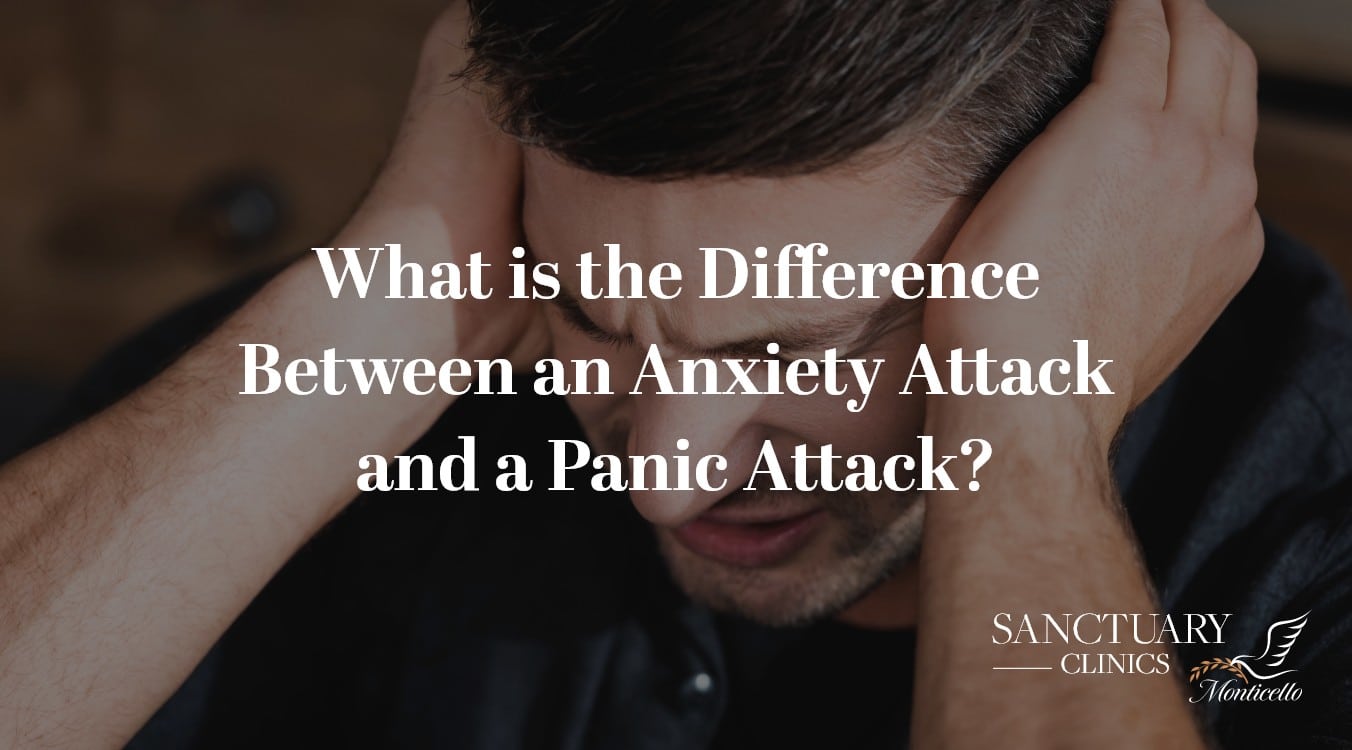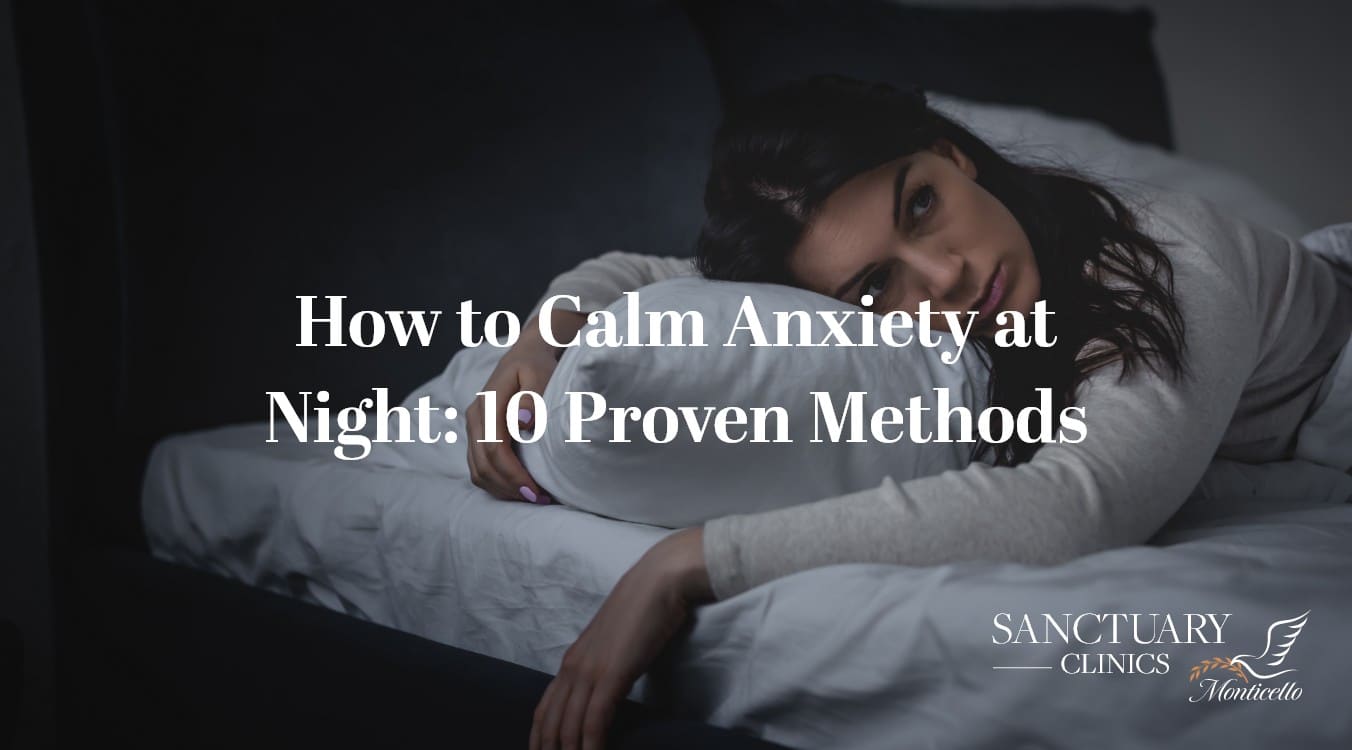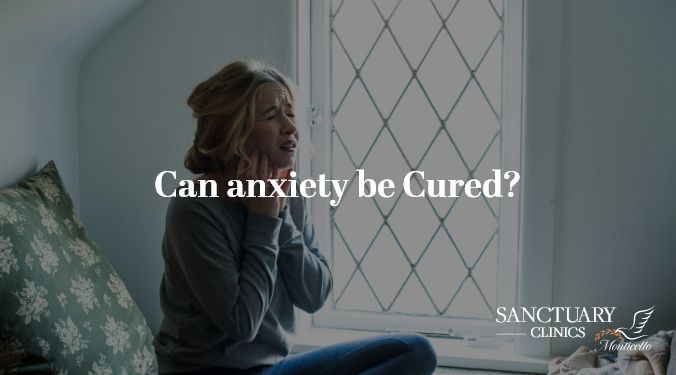The differences between panic and anxiety attacks are most recognizable in terms of the intensity of their symptoms and the length of time the main symptoms occur. Anxiety attacks often have obvious situations which bring them about, while panic attacks are abrupt, sudden, and only last a short time. Panic attacks can come on very quickly, and can include bodily reactions such as upset stomach, pain in the chest, dizziness, hot flashes, shortness of breath, and chills. They are usually more powerful than anxiety attacks.
If you have experienced anxiety or panic attacks you know that they can strike at random, are vivid and terrifying. There are many physical, psychological, and emotional symptoms involved in these attacks. Generally, a number of symptoms combine creating an intense period of fear or feelings of doom, lasting anywhere from an instant to several minutes.
Because everyone is different and each body is somewhat chemically unique, attacks affect different people differently. Symptoms can vary from person to person in kind, number, severity, and frequency. One person may experience only a few symptoms, while someone else may experience many, and each to different levels of intensity.
An example of an anxiety attack
An anxiety attack typically manifests in extreme worry, insomnia, a panicked feeling, feeling you are losing control, and the inability to turn your mind off. These unsettling feelings can be accompanied with a racing heartbeat or pain in your chest, or the feeling like you are going to pass out.
Get Help Today.
We are here to help you through every aspect of recovery.
Let us call you to learn more about our treatment options.
We are here to help you through every aspect of recovery. Let us call you to learn more about our treatment options.
An example of a panic attack
A panic attack is usually characterized by an out-of-the-blue physical reaction for seemingly no reason at all. A panic attack can include many physical sensations including feeling you are having a heart attack, shaking, sweating, or struggling to breathe. If you are having a panic attack, you usually feel the urge to flee your situation, while others are wondering what happened.
A certain level of anxiety is normal, and even healthy
Anxiousness is an important part of our body’s response to situations. A healthy level of anxiety can be a good thing, helping our bodies to respond hastily, without having to think, when situations warrant such a response. It can help us avoid hazards, telling us when to run or when to freeze.
Extreme anxiousness, however, can negatively affect your life and behavior. If you suffer panic attacks, for instance, you may start to avoid settings in which you’ve had attacks before for no other reason.
Can panic or anxiety attacks have adverse side effects to your health?
If you are suffering from panic or anxiety attacks, the information anxiety provides your brain becomes exaggerated, contributing to rising stress levels, making situations worse instead of better. You may find yourself steering clear of certain things that have set you off. For example, if you’ve had anxiety being around open water, you may avoid being around open water to feel safe. Anxiety can lend to developing various phobias. It can hamper your ability to function and curb your enjoyment of life.
If you suffer with panic or anxiety attacks, you are not alone!
Anxiety affects nearly one in three people in America. Anxiety disorders can be hereditary. If you have a close relative who has had panic or anxiety attacks, you are statistically at higher risk. According to the National Institute of Mental Health, panic disorder affects about 4.7% of adults in the U.S. at some point in their lives. The Anxiety and Depression Association of America states that 40 million U.S. adults experience significant anxiety each year, and more than 28.8% of adults experience clinically meaningful anxiety symptoms. But the very good news is, both panic and anxiety attacks are highly treatable.
What can you do to ease your anxiety levels?
There are many things you can do on your own to curb your anxiety levels. Exercising, getting a good night’s sleep, healthful living, and avoiding caffeine, alcohol, and drugs can help. Recognizing your sources of stress and working to manage your stress levels and negative thoughts can also be very helpful. Meditation can help. Seeking out a support group for people with anxiety or panic attacks is a step many have found helpful.
When you feel an attack coming on, recognize what’s happening and accept it. Remind yourself that these symptoms won’t be permanent. Try to slow down your breathing, paying attention to each breath—inhaling deeply and exhaling fully. Try to find ways to relax. You might ground your thoughts by focusing on something you know is safe. Some people find a fixed object to hold or steady themselves. Talk to yourself and remind yourself all will be okay.
Treatment options
Anxiety and panic attacks and their symptoms can be successfully treated with the right information, help, and support system. With treatment, many people get back to a normal, healthy and fulfilling life.
Going to therapy is an option. A therapist can use a variety of techniques to help you, such as:
- Exposure therapy – exposing you, in a controlled way, to something you tend to avoid, increasingly building your tolerance level for that stressful encounter.
- Relaxation techniques and meditation – including breathing exercises, guided imagery, and desensitization, helping to form a more measured response to stimuli.
- Cognitive-Behavioral Therapy (CBT) – helping you develop approaches for controlling your triggers when they appear. Cognitive therapy can help you negate unpleasant thoughts, countering them with more reasonable and measured responses.
Start by having a talk with your doctor. While your doctor can’t diagnose an anxiety attack, he or she can diagnose anxiety symptoms or disorders, and panic attacks or disorders. From there, your doctor may order some tests such as a physical, blood work, an EKG, and a psychological evaluation to help you understand what’s happening and get you the help you need.
Your doctor may also prescribe medication for you to use. With anxiety attacks, shorter-term medications are helpful for decreasing your anxiety, while allowing you time to learn better stress and emotion management skills. With panic attacks, because these usually arise from deeper issues, longer-term antidepressants can be beneficial in halting the panic attacks to get to the root causes through therapy. Medications do not cure panic or anxiety attacks, but they can be used effectively in coordination with other treatment modalities to bring significant relief to those struggling with these conditions.
It is important to know, however, that these medications can have adverse effects including dependence. Medications should always be prescribed and used as directed by your provider.
Be encouraged!
Continued advancements in the treatment of anxiety and panic disorders are continuing to bring confidence and relief to people. If you or someone you love is suffering with panic or anxiety attacks, there is hope—with treatment, the future remains bright and hopeful.
Get Help Today.
We are here to help you through every aspect of recovery.
Let us call you to learn more about our treatment options.
We are here to help you through every aspect of recovery. Let us call you to learn more about our treatment options.









